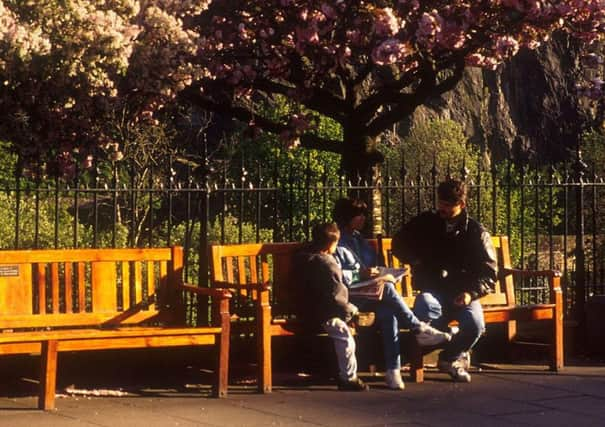Why hanging out on a bench is good for your health


Sitting in open spaces allows people to meet others and feel connected with their community, and is especially helpful for those cannot afford to go to a cafe or are not in work or education.
The research by the University of Sheffield and the Young Foundation challenges “hostile architecture” that uses deliberately uncomfortable seating to stop groups from gathering and addresses negative perceptions that groups lingering on benches potentially leads to anti-social behaviour.
Advertisement
Hide AdAdvertisement
Hide AdThey claim the current trend of removing benches from cities “damages community life” and hanging out should be regarded as “essential for mental health and social wellbeing.”
The benches were also good for physical health, they said, as they provide resting places for people with limited mobility.
However the researchers in the University’s Department of Landscape and the London-based think tank, conclude that the traditional park bench with wooden slats may be comfortable, but are not the best for those who enjoy gathering in larger groups.
The findings are by the Bench Project - a collaboration between the University’s Department of Landscape and The Young Foundation with Sheffield Hallam University, The University of Sussex and the Greenwich Inclusion Project – which investigated the use of public spaces in two different London neighbourhoods, Woolwich and Sutton.
Advertisement
Hide AdAdvertisement
Hide AdGroups using open spaces in Woolwich include elderly Nepalese women and men who have settled in the area largely due to the historic connection with the military barracks. Some of the women spoken to said they felt closer to friends they met on the open than their own family, and that prior to their “sisterhood”: “loneliness was a constant lingering feeling.”
Addressing negative perceptions that groups were anti-social, researchers suggested that the people using the same space were tolerant of “big groups, banter and the occasional can of beer.”
They said: “In diverse communities this acceptance of a wide range of behaviours is crucial, and being able to use benches and enjoy high quality public space can contribute positively to a sense of local belonging.”
Good planning and design was also a key to their success and factors including good visibility, zoned noisy and quiet areas and lots of pedestrians walking by helped people feel safe.
Advertisement
Hide AdAdvertisement
Hide AdClare Rishbeth, from the University of Sheffield’s Department of Landscape and the project’s Principal Investigator, said: “It is heartening to find how sitting outside can improve quality of life for many people, and underlines the importance of socially aware design of both benches and public space.”
Radhika Bynon, from The Young Foundation, added: “Benches are egalitarian, and the current trend of removing them in cities damages community life. Our research found that benches help people to feel a sense of belonging to an area, and helps to combat loneliness and isolation.”
The project, funded by the Arts and Humanities Research Council, has produced an 18-minute documentary which will be premiered in November.